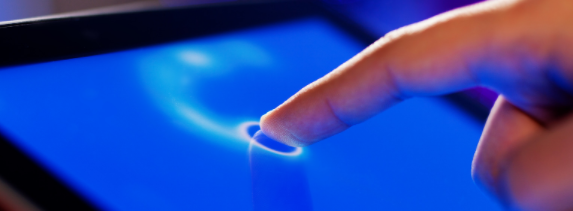Since I get on the train around 5:30 in the morning, most of us riding into New York use the time to sleep–until the train stops at 125th Street, and then we start to move about. Some get their stuff together but stay seated, and others (like me) stand up near the door just to stretch out legs for the last fifteen minutes of the ride, and to be able to leave the train quickly. As we stand there, almost everyone passes the time by staring at a screen.
No one makes eye contact or dares attempt a conversation.
It has not always been that way (the part about staring at a screen), but it’s hard to remember those days. I say that more as an observation than a criticism; it is hard to remember life before our handheld computers that we continue to call phones. I can remember always having a book in my bag when I rode the subway regularly in Boston. I looked around this morning and no one I could see had a book. Only a screen.
We are being changed by our technology, but that is not a new thing.
When I got to my desk, I pulled out the book I had with me and Ilia Delio had this to say:
Our addiction to technology is causing us to unmake the world at an alarming rate. Perhaps most important, we are losing the capacity to love by way of forgiveness and reconciliation; that is, we are losing the ability to transcend our partial lives by way of love in order to create a new future together. Political, economic, and social unrest continues to spiral, thanks to technology, and we cannot find a means to slow down or turn in a new direction.
Her words made a rather gruesome connection in my brain, taking me back to my classroom at Charlestown High School in Boston and a presentation by folks from Facing History and Ourselves, an amazing group that helps students understand what it means to be a compassionate participant in life. The presenter talked about the Battle of the Somme, a horrendous event in World War I that marked the first use of machine guns by the Germans–a change in technology.
In one day, almost 20,000 British soldiers were killed and 57,000 injured–the worst day in the history of the British Army. Part of the reason they died was they didn’t understand the implications of the technology they faced and they walked right into the bullets.
Since then, how we wage war has become more and more distanced so that now someone operates something akin to a video game somewhere and bombs the hell out of someplace else on the other side of the world and then goes home for dinner. The disconnect belies the impact of their actions.
The same is true, it seems to me, when it comes to hitting send or retweet.
I know that analogy is overstated, but when I think about the escalation in division and rancor in our country, about our struggle to listen with intention or to focus our attention, I wonder if our lack of ability to communicate is tied to the rapid changes in technology that have us living through our devices, or at least allowing the disconnect they bring to belie the impact of our words.
I have many reasons in my life to be thankful for social media, not the least of which is the chance to reconnect with people from all the different addresses of my life. It’s not all bad. It’s just too much too quickly for us to understand how it is changing us.
After the 2016 election, we were shocked that Trump chose to tweet rather than to make speeches. Now that is how world leaders make announcements, and reply to them. Are we starting to think that Twitter is actual communication?
The question is rhetorical.
What I wanted to get to in this post is more than a cautionary tale. As I continued reading Ilia Delio, she asked,
But if love is our truest nature, and technology is changing that nature, how can we renew our deepest reality of love? This is a question for our age and an important one to engage. For the type of love that mends broken hearts is not superficial; it cannot be controlled electronically by the touch of a button. It is a decision to love beyond what is beneficial or satisfying to one’s ego; it is to love by way of sacrifice. . . . It requires our utmost attention, our hearts and our wills; this type of love requires total self-gift.
One of the things I know about myself is I rarely do one things at a time when I am on a screen. Put me in a Zoom meeting and I am answering email and writing texts while I am watching those on camera. It is hard for me to give my utmost attention, which means I am not offering my best. I am not making my best self-gift.
Ilia says there is more riding on that than I thought.
God will not mend our broken hearts without us, but God will continue to be with us, challenging us with the question: What do you want? How we choose to love in a world of distrust will affect our future, a future that we will create together or not at all.
May our hearts break and heal together.
Peace,
Milton

Very true and quite profound. Have you read The Book of Joy, Douglas Abrams? I would highly recommend it. At the end there is a section of Joy practices. I am still going through them and enjoying the introspection and joy that is happening.